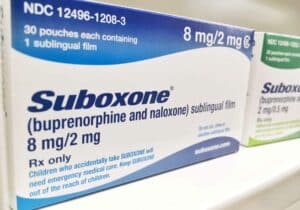Depression, often misconstrued as mere sadness or fleeting mood fluctuations, is a multifaceted mental health condition that impacts numerous people worldwide. The scope of depression is broad, including a myriad of subtypes. Understanding and differentiating these types of depression is pivotal, shedding light on the condition and guiding individuals towards the appropriate therapeutic direction. Let’s delve into the intricate world of depression within the backdrop of Chattanooga, TN.
Understanding Depression and Its Various Types
At its essence, depression is a deep-seated mood disorder, characterized by enduring feelings of emptiness, prolonged bouts of sadness, and a pervasive loss of interest in activities. It transcends fleeting mood changes; the clutches of depression can dramatically reshape everyday life, influencing cognition, emotions, behavior, and even physical health. The all-encompassing nature of depression can lead to social isolation, difficulties in nurturing relationships, and consistent challenges in work or academic settings. Being multifaceted, depression manifests in various specific types, each with its characteristics and causes. Let’s further dissect these types of depression.
Major Depression
Commonly referred to as clinical depression or MDD (major depressive disorder), this is a version most are familiar with. Major depression immerses individuals in a profound sea of despair and an aversion to activities they previously cherished. It can display varied symptoms, ranging from disrupted sleep and appetite patterns, persistent fatigue, concentration issues to intense feelings of guilt and recurring, harrowing thoughts of self-harm or suicide. These potent symptoms can hamper personal, professional, and academic relationships.
Bipolar Disorder: The Dual-Sided Depression
Bipolar disorder is not merely a binary toggle between moods but signifies a spectrum of emotional disturbances. Periods of mania can exhibit diversely. Some may feel unstoppable, juggling multiple projects or making grand plans. Risky behaviors, such as excessive spending or impulsive decisions, might emerge, driven by a belief in their invulnerability. Conversely, during depressive episodes, the gravity of desolation can render even rising from bed a herculean task. Social engagements wane, guilt or feelings of worthlessness intensify, and the world appears monochrome. This disorder’s cyclical nature further complicates matters, as the unpredictability of mood swings can strain relationships, disrupt career trajectories, and challenge one’s self-concept.
Chronic Depression: The Persistent Cloud
Chronic depression can silently linger. Externally, individuals might seem to manage, but internally, they grapple with an unending undercurrent of sadness. Its subtle nature often leads to misconceptions, sometimes labelling them as merely “gloomy” or “melancholic.” Over time, this persistent condition can erode self-esteem, rendering once simple tasks arduous. This form of depression’s continuous nature might make it difficult for individuals to recall moments of genuine contentment or happiness, amplifying their sense of despair.
Seasonal Affective Disorder (SAD): Seasons Steering Emotions
While many dismiss it as mere “winter blues,” SAD’s influence extends beyond transient cold-season downheartedness. The diminished sunlight during these periods can upset one’s circadian rhythm, inducing sleep irregularities and mood shifts. For some, the effects are significant, leading to isolation, appetite changes, and a dramatic dip in energy levels. The condition’s predictability — the cyclical return of these emotions with changing seasons — can be particularly challenging.
Postpartum Depression: Navigating New Motherhood’s Challenges
Postpartum depression emerges in women post-childbirth. Beyond just “baby blues,” societal pressures about motherhood can amplify feelings of inadequacy or guilt. Comparisons, whether tangible or perceived, can heighten feelings of isolation. This sudden identity shift can be jolting, adding complexity to their emotional landscape. In severe instances, challenges in bonding with the baby or even harmful thoughts towards oneself or the infant may arise.
Other Types of Depression
Each subtype possesses unique challenges. With psychotic depression, individuals might grapple with distinguishing reality. Those with atypical depression can experience erratic emotional landscapes. Situational depression, often tied to external events like trauma, demonstrates our vulnerability yet also our resilience. Substance-induced depressive disorder showcases the intricate dance between substance use and mental health, sometimes spawning a vicious cycle of temporary relief and deepening depression.
Types of Therapy for Depression Treatment
Depression is daunting, but an array of therapeutic interventions has shown efficacy in its management. Here’s an overview:
- Cognitive-behavioral therapy (CBT): A structured approach that helps in identifying and reshaping harmful thought and behavior patterns.
- Dialectical behavior therapy (DBT): Equips individuals with tools like emotion regulation, distress tolerance, and improved interpersonal skills, interspersed with mindfulness techniques.
- Red Light Therapy: Uses red and near-infrared light wavelengths to activate the body’s natural healing mechanisms.
- Yoga: A holistic blend of mind and body to foster self-awareness and alleviate stress.
- Mindfulness Practices: Encourages grounding in the present, curbing overthinking, and fostering emotional stability.
- Art and Music Therapy: Offer mediums to navigate and express complex emotions, ensuring insight and catharsis.
Depression and Substance Abuse
The relationship between depression and substance abuse is convoluted and often mutual. Substance use can provide a brief escape from emotional pain, only to exacerbate depression later, creating a relentless cycle. When depression coexists with substance abuse, its treatment necessitates a comprehensive approach to ensure holistic healing.
Depression Treatment in Chattanooga, TN
At Iris Wellness Group, located in the scenic city of Chattanooga, TN, we take a comprehensive approach to depression treatment, blending time-tested methodologies with holistic care. Recognizing that depression manifests uniquely in each individual, our dedicated team is committed to personalizing therapy to resonate with their specific challenges and goals.
Dive into a transformative experience with specialized depression treatment in Chattanooga, TN. Serving the broader Tennessee community, Iris Wellness Group places your mental and emotional well-being at the forefront of all we do.










